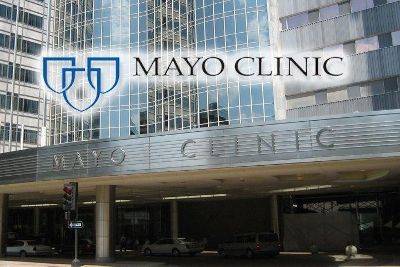 A month or so ago, Smile Politely posted an article about our local Science Café, a group that aims to bring the most interesting research conducted at the University of Illinois to you, the public, with the opportunity for the community to engage with the people behind the science.
A month or so ago, Smile Politely posted an article about our local Science Café, a group that aims to bring the most interesting research conducted at the University of Illinois to you, the public, with the opportunity for the community to engage with the people behind the science.
On September 4th, I attended the first talk of the semester, held at the Champaign Public Library.
A diverse audience had come to hear the speaker, Bryan White, talk about the human microbiome. There were approximately twenty people in attendance, ranging in age from a teenage undergraduate to an soon-to-be 80 year old woman sitting at the front of the room. “I don’t know how it happened,” she told us. “I just kept on doing what I normally do, and then suddenly I was old.”

Dr. White, who has appointments in both the Institute for Genomic Biology andNutritional Science, began his presentation with the crazy fact that the human body carries 10 times more microbial cells than human cells.
I’m just going to repeat that here: for every human cell in your body, there are 10 microbes: bacteria, protozoa, and other single-celled organisms.
These micro-organisms make up 1–3% of your body mass; if you were to disappear at this very moment, a full 2–4 pounds of microbes would be left where you once stood (so go ahead and feel free to shave off a couple of pounds from your weight, it’s not really cheating).
Each part of the body has its own microbial community, Dr. White told us. If you think of your body as a planet, your nose, gut, and vagina (if you have one) are the rainforests, with the richest diversity. Thirty percent of your entire daily caloric intake is used to simply generate more gut tissue, which is helped along by your friendly gut flora. Your particular microbe community is as unique to you as your fingerprints, although there are some commonalities: infants obtain their microbes from their mother (I will come back to this later), and people who live with each other or with pets tend to share common microbes. Typically, the right hand has more microbial diversity than your left, unless, of course, you’re a southpaw.
 While the audience was appropriately fascinated and grossed-out by their general introduction to the microbiome, the section that resonated the most with the community concerned the major implications for human health. Dr. White is the director of the alliance between the University of Illinois and the Mayo Clinic, andis working hard to understand the interactions between microbial communities to help us better understand serious diseases and their potential therapies. For example, many autoimmune diseases, including Crohn’s disease, have been shown to benefit from microbial therapy. A particularly dangerous infection in hospitals is infection with Clostridium difficile, more commonly referred to as C. dif. These bacteria completely destroy your native gut flora and cause rapid, dangerous weight loss and dehydration. About 14,000 Americans a year die from complications of infection with C. dif. So far, the most promising cure for C. dif infection is clearing it out with strong antibiotics, and replacing your gut flora with microbes from a healthy person. How do you get the healthy microbes?
While the audience was appropriately fascinated and grossed-out by their general introduction to the microbiome, the section that resonated the most with the community concerned the major implications for human health. Dr. White is the director of the alliance between the University of Illinois and the Mayo Clinic, andis working hard to understand the interactions between microbial communities to help us better understand serious diseases and their potential therapies. For example, many autoimmune diseases, including Crohn’s disease, have been shown to benefit from microbial therapy. A particularly dangerous infection in hospitals is infection with Clostridium difficile, more commonly referred to as C. dif. These bacteria completely destroy your native gut flora and cause rapid, dangerous weight loss and dehydration. About 14,000 Americans a year die from complications of infection with C. dif. So far, the most promising cure for C. dif infection is clearing it out with strong antibiotics, and replacing your gut flora with microbes from a healthy person. How do you get the healthy microbes?
Find someone you love and trust, and ask them for their poop.
Fecal transplants have an almost 100% success rate in curing C. dif. As you can imagine, the audience was particularly intrigued by this form of therapy, and there were many questions about how, exactly, the fecal transplant process works. The short answer: it’s not as bad as you think and does not require swallowing anything unpleasant.
Another section of the talk that received a lot of audience attention concerned how you acquire your microbiome in the first place. Infants obtain their first gut flora from their mother. Interestingly, infants born via planned c-section (where the barrier to the vaginal canal has not been breached) have a 40% greater chance of contracting an autoimmune disease. With the research being conducted both here at the U of I and our collaboration with the Mayo Clinic, new insights about the microbiome can help us reduce the possibility of infants developing autoimmune diseases with simple and easy solutions. One member of the audience asked about a different relationship between infant and mother microbiomes, and Dr. White said that while he did not know the answer, they had the data to answer that interesting question, further showcasing the value that talks such as Science Café have not just for the local community, but for the scientific community as well.
 In one hour, we learned an incredible amount about cutting-edge research and had a great discussion. I strongly encourage anyone interested to attend the next Science Café on October 2nd at the Champaign Public Library. Preethi Jyothi, from the Beckman Institute, will be talking about developing technology for Automatic Speech Recognition. Hope to see you there!
In one hour, we learned an incredible amount about cutting-edge research and had a great discussion. I strongly encourage anyone interested to attend the next Science Café on October 2nd at the Champaign Public Library. Preethi Jyothi, from the Beckman Institute, will be talking about developing technology for Automatic Speech Recognition. Hope to see you there!
If you are interested in learning more about the collaboration between the university and the Mayo Clinic, they have a wonderful website with great information on current research and the field of individualized medicine.








